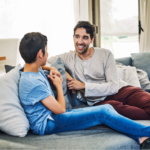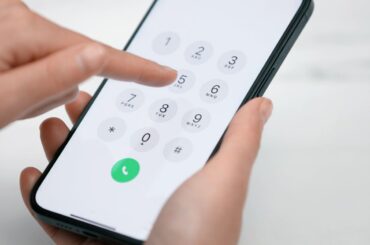The teen and preteen years are full of tricky social situations. As kids are getting older and more independent, they are naturally drawn to testing boundaries and experimenting with new things. At the same time, their social lives are starting to take center stage as they learn to navigate these new social situations on their own.
Where does peer pressure come from?
Peer pressure is very real—whether when teens are out with friends or in online chats. It can be very difficult for kids at this age to say no to friends or peers that they look up to, because their brains are wired to care most about social rewards.
As kids start to spend more time independently with their friends and peers, situations may arise where they feel pressure to do things they don’t want to, like try alcohol or drugs or participate in a toxic online trend. That’s why it’s so important to give kids the language to use in these situations.
What can kids say in response to peer pressure?
Even if they roll their eyes or push back, your teen or tween can still benefit from thinking about what to say when they’re feeling pressured. Here are 10 phrases to teach your child to use when faced with peer pressure—
- “I’m gonna sit this one out.”
- “I just know it would get back to me, even if I tried it for half a second. I have such bad luck.”
- “I can’t, my mom needs me home like an hour ago. She’s pissed.”
- “What could we do instead that won’t get me kicked off the team?”
- “I just feel like doing my own thing today. Thanks though.”
- “Nah, I’m good.”
- “No thanks, I’m just here for the free snacks/music/people watching.”
- “That’s okay. I was about to go get ice cream, if anyone wants to join.”
- “I’m trying to be responsible so I can earn a later curfew.”
- “Hard no. Not my thing.”
One helpful trick is to let your child know that they can always blame you if they need an excuse. You might brainstorm together to come up with a word, phrase or emoji that they can say or send if they’re feeling peer pressure—and you’ll come get them, no questions asked.
In addition to talking through strategies with your tween or teen, try your best to create a judgment-free dynamic where they feel like they can come to you even if they did do something they regret. That kind of open communication can help keep them safe as they face increasingly complex social situations.







